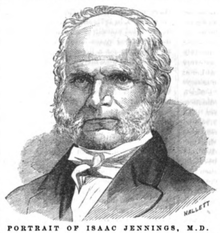– Biography:
– Born on November 7, 1788, in Fairfield, Connecticut
– Studied medicine with Eli Ives of New Haven
– Graduated from Yale School of Medicine in 1812
– Became a member of the Board of Trustees of Oberlin College in 1839
– Died of pneumonia on March 13, 1874, in Oberlin, Ohio
– Medical Practices:
– Started giving patients placebos of bread pills and colored water tonics in 1822
– Believed in the do-nothing cure and no-medicine plan
– Prescribed bathing, rest, and a vegetarian diet
– Opposed the use of alcohol, drugs, coffee, tea, tobacco, meat, and spices
– Described medicine as a gross delusion
– Orthopathy System:
– Defined orthopathy as the right, true, and erect affection of nature
– Discarded placebos by the 1830s
– Believed in vitalism and the body’s ability to heal itself
– Advocated for rest and avoiding disturbance by medicine or stimulants
– Influenced natural hygienists like Felix L. Oswald and Herbert M. Shelton
– Publications:
– “Medical Reform: A Treatise on Man’s Physical Being and Disorders” (1847)
– “The Philosophy of Human Life” (1852)
– “The Tree of Life: Or, Human Degeneracy, its Nature and Remedy: Based on the Elevating Principle of Orthopathy” (1867)
– Influence and Reception:
– Influenced many natural hygienists and listed as a father of the hygiene movement
– Criticized by some as practicing quackery and having ideas unpopular with the present day
– His methods were described as a disgrace to the regular profession
– Received mixed reviews for his book “The Tree of Life”
– Remembered for his contributions to the field of natural health and hygiene
Isaac Jennings (November 7, 1788 – March 13, 1874) was an American physician and writer who pioneered orthopathy (natural hygiene).
Isaac Jennings | |
|---|---|
 | |
| Born | November 7, 1788 |
| Died | March 13, 1874 (aged 85) |
| Occupation(s) | Physician, writer |
